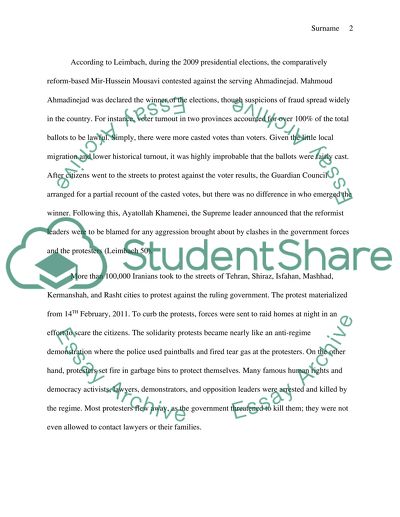Retrieved from https://studentshare.org/english/1464448-street-protests-as-the-aftermath-of-2009-presidential-election-and-human-rights-violation
https://studentshare.org/english/1464448-street-protests-as-the-aftermath-of-2009-presidential-election-and-human-rights-violation.


